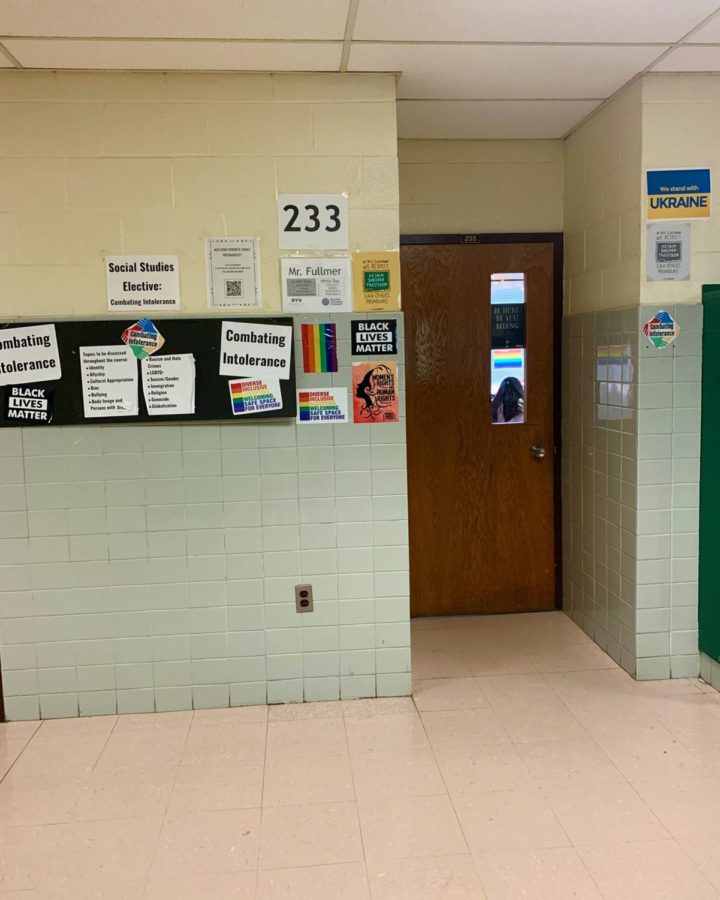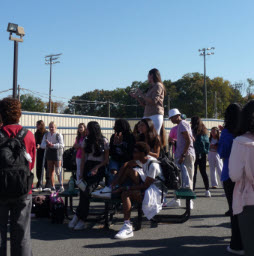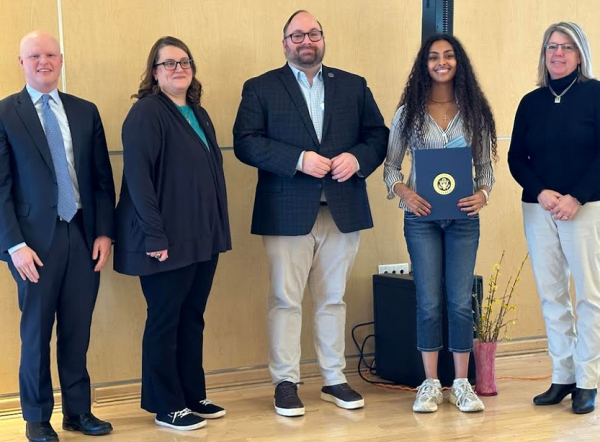Amid political climate, enrollment concerns, Combating Intolerance faces uncertain future
Combating intolerance spreads awareness about their class.
Racism, ableism, and homophobia are just some of the topics discussed in a Combating Intolerance class. The class offered here at Falls Church addresses social injustices that people go through everyday, especially in school. Topics discussed in this class are meant to conjure up passionate responses from students who are willing to alter their understanding of social, political, and moral issues.
Students openly discuss their perspective and personal experiences on racism and sexism. For this reason the Combating Intolerance class is at risk of no longer being offered because of new legislation passed by Virginia Governor Glenn Youngkin. The administration has made it unlawful for educators to teach students that “one race or sex is inherently superior to another.”
The bill also takes aim at critical race theory. Though it is not taught in Virginia’s curriculum, Youngkin and other Republican governors have made it a key education issue. Critical race theory, a graduate level legal framework, argues that the US government has racism embedded in its social institutions, such as the criminal justice system and the education system. Combating Intolerance does not teach critical race theory, but the bill’s intentionally broad language could affect the class’ discussion of controversial topics.
Due to the concerns about enrollment, the Combating Intolerance elective may no longer be offered to students next year.
The Combating Intolerance teacher, Colton Fullmer understands the importance of allowing a safe place for students to have open discussions and opinions without judgment. “What’s great about the class is I emphasize that it’s not a debate class,” said Mr. Fullmer. “We are not here to prove who’s right and who’s wrong.”
Despite this, the admin has shown a lot of support and understanding for Mr. Fullmer’s class. “I feel very supported at this school,” said Mr. Fullmer. “I think it helps that we have such a diverse population and people really care about what we have to say.”




